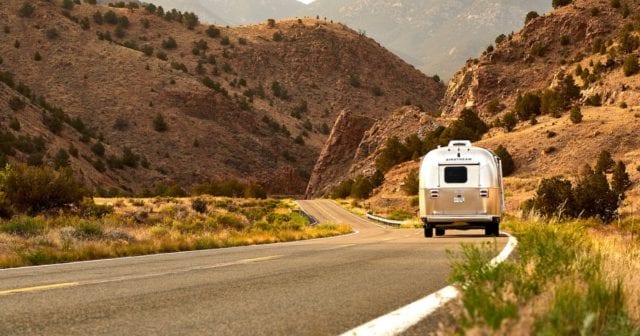Are you ready to get on the road, eat up the miles, and go wherever the wind — and your RV — take you? Your RV is your ticket to freedom. Proof that you can’t be pinned down or stuck in one spot for long.
The open road is calling, but before you jump in the driver’s seat, protect your RV from the dangers that lurk on the road. Make sure you have the right kind of and enough RV insurance.
Does Your RV Need Insurance?
There’s a difference between insurance being required and being needed. Depending on the type of RV you have, it might not be required, but to protect yourself and avoid paying too much out-of-pocket after an accident, it’s definitely needed.
First, it’s important to understand the different classes of RVs.
- Class A: luxury coaches, motor coaches, and renovated buses, up to 75 feet long.
- Class B: the smallest class of RVs, these include travel trailers and camper vans, but don’t have a cab-over.
- Class C: fifth wheel vehicles and vehicles that use a standard cargo van for driving and the camper extends over the cab area.
Unless you have a loan on the camper you tow (generally a Class C vehicle), you aren’t required to carry extra insurance. But because the cost of damages after an accident can be so expensive, the additional coverage is an investment in your future.
Available Coverage for RVs
Most of the insurance options available for your RV will be familiar to you, as they’re very similar to auto insurance.
- Liability for bodily injury and property damage
- Uninsured/underinsured motorist
- Personal injury protection (PIP)
- Limited property damage
- Property protection
- Comprehensive and collision
But recreational vehicles aren’t exactly the same as cars and trucks, so many insurers offer other specialized forms of coverage.
Total Loss Replacement: For brand new RVs, you can choose total loss replacement. Older RVs will typically only allow actual cash value.
Custom Equipment: If you trick out your RV, ask your insurance agent about additional coverage for those custom parts. Standard policies typically allow a limit of $1000.
Vacation Liability: Liability coverage while you’re using your RV as a temporary vacation residence. This offers extra liability protection. The standard amount is typically $10,000 but you can purchase more.
Roadside Assistance: You can get your RV towed to the nearest qualified repair shop for specific covered events like breakdowns, flat tires, lock outs, out of gas, and being stuck in snow, mud, or sand within 100 feet of the the road.
Give yourself peace of mind this summer when you hit the road in your RV. Make sure your vehicle and your family are protected with enough insurance. There’s no telling what will happen out on the road, but you can guard against it with the right RV insurance.
Contact Charlotte Insurance to go over your current RV insurance coverage and to fill any gaps in coverage you might. We’re happy to answer your questions and provide a free estimate.

